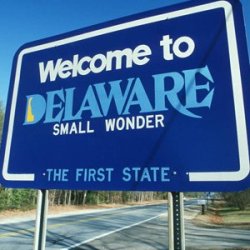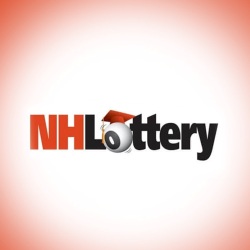Delaware’s iGaming Market Needs Restructuring

When one thinks of online poker in the United States, the markets of New Jersey and Nevada likely spring first to mind, but they’re not the only places where people can log in and play legally. Delaware also has a regulated online gambling and poker industry that often gets overlooked and forgotten. That’s a shame, because it’s clear when examining the system in place that the state could use some major improvements which could ultimately yield positive results. Here are some odd or impractical features of Delaware current iPoker market and associated regulations:
1. There is Only One Name in the Game
Delaware has a different approach to online poker than Nevada and New Jersey, and its model also differs from the ones presently under consideration in places like California and Pennsylvania.
In Delaware, the state lottery runs online poker, allowing its three regulated land-based racinos, Dover Downs, Harrington Raceway and Delaware Park, to serve as branded operators. Regardless of the brand they choose, all players in the state then use the same platform which is created by Scientific Games and 888 Holdings.
While this does allow for a streamlined introduction for online poker, on the flip side players don’t have any real incentive to play at one site or another and racinos therefore are unable to differentiate themselves from their rivals. With no real competition, players are robbed of the chance to have access to different types of games, such as online slots based on the ones found in each individual racino.
2. Racinos Are Losing Money on the Deal
Delaware signed its legislation into law before Ultimate Poker launched in Nevada, so they had no real way of knowing what type of response they could expect once iGaming was legal. As lawmakers often do, Dover overestimated how much revenue online poker would actually generate, predicting that they would bring in over $5 million in 2014.
Based on this assumption, Delaware’s law said that the first $3.75 million made from online gaming would go to the state, and that the remaining revenues would be split. For online slots, the state would get 43.5 percent, with casinos getting 46.5 percent, and horse racing operators 10 percent. For table games, the state would collect 29.4 percent, with casinos receiving 66.1 percent and horse race operators 4.5 percent.
The deal may have seemed fair based upon the pre-regulation estimates Delaware made, but unfortunately, the state has yet to see revenues break through the $3.75 million ceiling. In 2014, online gambling generated only $1.4 million in revenue, and the following year, revenues rose to just $1.8 million.
For the 2016 Fiscal Year, online poker did come close to the mark, bringing in $2.5 million in revenues. But still, after three years, the casinos and racetracks have not made a single penny off of online gaming and are instead absorbing costs that are impacting their bottom line.
Clearly, Delaware needs to at least reexamine how revenues from online gaming are shared if they want to continue with the lottery as the sole provider. Otherwise, the game needs to be opened up to allow the racinos to compete with one another.
A Great Summer for iGaming
In the meantime, Delaware has just enjoyed a bumper summer as far as overall iGaming revenues are concerned, which has been welcomed as an unexpected surprise considering June, July and August are traditionally quieter months due to online gamblers pursuing more outdoor activities.
In fact, June broke all records when it hit $304,874 in iGaming revenues, while July saw its business soar 139% to $281,000. August’s results have also just recently been released, and once again the state’s operators reported double-digit growth with revenues up an impressive 54% to $244,387 compared to the same month in 2015. Furthermore, the increase in revenues was shared out all across the board; Delaware Park was up 65% to $130,501; Dover Downs up 83% to $95,268; and Harrington higher up 54% to $43,229 versus last year.
Online poker, however, represent a small proportion of overall online gambling revenues and in June generated $36,310 (+18.4%), in July $33,745 (+20%), and in August $29,155 (-7%). By way of comparison, New Jersey generated online poker revenues of $1.97m in June, up 7.3% year-on-year; in July revenues were again higher by 6.7% at $2; and in August revenues jumped by 9.6% to $2.17m versus the same month in 2015. Each month, the Garden State subsequently generates around $17m to $18m in overall iGaming revenues.









